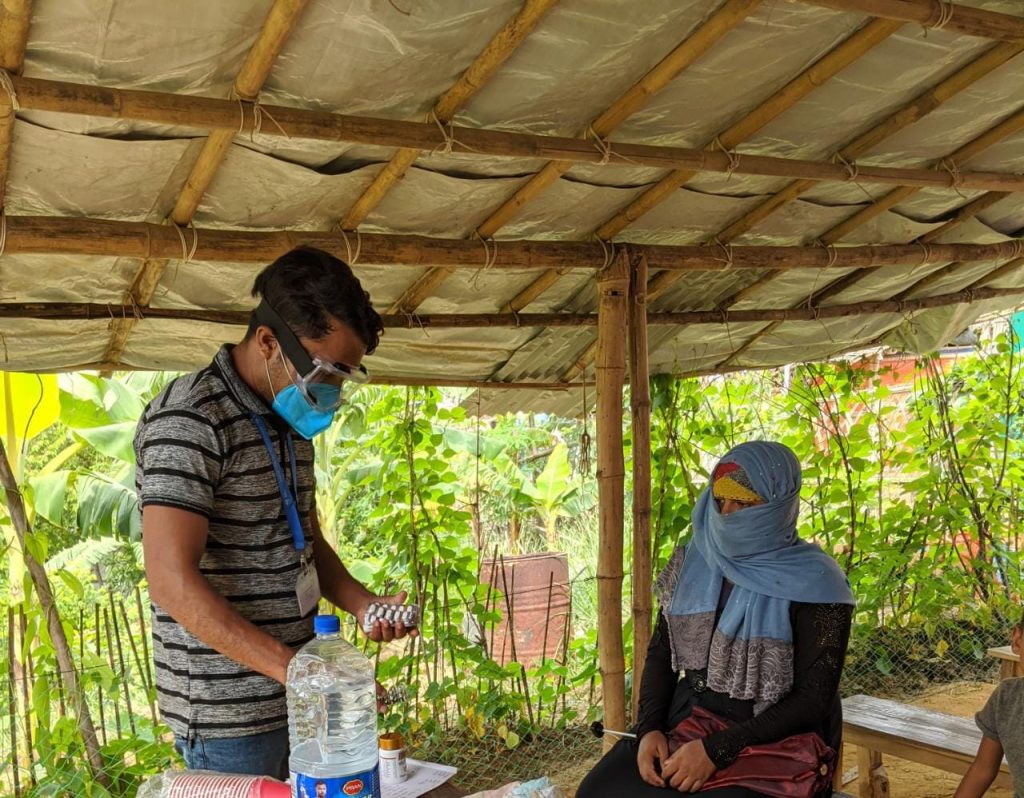
“My grandson fell a week ago and injured his arm,” a woman from one section of the Rohingya refugee camp informs me. “It was out of joint and a local Rohingya doctor put it back in place, but he still has pain. Can you give him something for pain?”
I examine the 7-year-old’s arm gently. It is very tender and swollen with limited elbow movement. “I think he should go the hospital to have it x-rayed. It might be broken. He might need a cast.”
“I am not going to the hospital!” the grandmother emphatically responded. “We have heard the hospitals are giving injections to people to kill them because they might have Coronavirus. Please, just give him something for pain.”
A mother with a 2 1/2- month-old son is in the separate outdoor area where I screen patients with fever for symptoms of Coronavirus. One look at the baby’s labored breathing and I make referring him and getting him on his way to the hospital my top priority. He is not doing well at all. I quickly write a referral form and send one of our staff with the mother and baby to the nearest hospital with a brief stop along the way to inform the husband of our plans. The husband bulks. What if the hospital thinks his baby has Coronavirus and kills him? The parents decide not to send the baby.
Meanwhile, before hearing the father’s decision, I am on the phone with the nearest hospital. “We are sending a 2 1/2-month-old baby to you who seems to have pneumonia and is struggling to breath. He needs oxygen.”
“Any chance of Coronavirus?” they query.
“There haven’t been any confirmed cases in this area of camp yet,” I reply.
“Sorry. We can’t take him. Our isolation unit is full.” You’ll have to send him somewhere else.
The baby died later in the day.
The first case of COVID-19 was identified in camp around 15 May. There have been 36 confirmed cases of COVID-19 among the Rohingya population as of 10 June according to the World Health Organization. These 36 cases are spread out among 12 different sections of camp indicating diffuse spread. The real numbers are likely much higher. My friends tell me of older people they know who have died in the past two weeks after having cough and fever. There have been 2 confirmed deaths.
As cases have increased, testing rates have gone down. People seem more afraid of the possibility of isolation and quarantine than they are of the virus itself.
Prayer Points:
1) Thank God that people seem to trust our clinic and the care we give. Ask that they would not attribute that to us being foreigners, but rather attribute it to us being Followers of Jesus.
2) Pray that people needing emergency, life-saving medical care would not be too afraid to access the care that is available.
3) Pray that health facilities within camp would treat patients with respect and kindness, COVID-19 suspected or not, and that more trust would be built between the refugee community and the medical community.